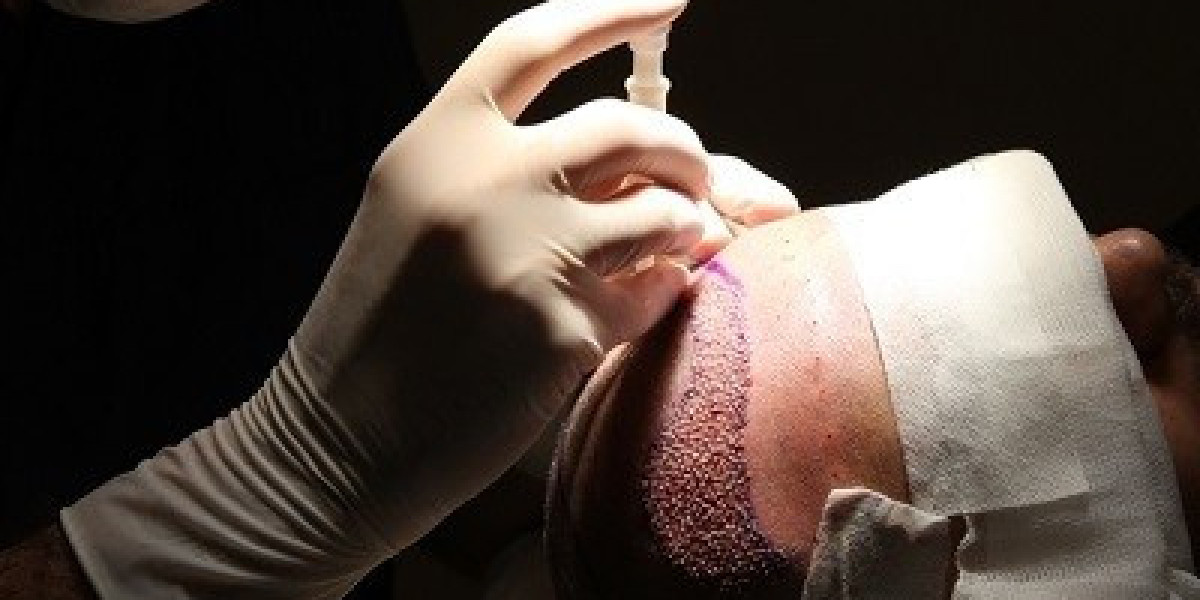Hair loss can be a challenging and emotional experience, leading many individuals to seek solutions that can restore both their hairline and self-confidence. One of the most effective and permanent solutions available today is a hair transplant treatment in Islamabad. However, before deciding to undergo this procedure, it’s essential to understand whether you are a suitable candidate. While hair transplants are effective for many people, not everyone is an ideal candidate. In this blog, we’ll discuss the key factors that determine if you are a good candidate for a hair transplant and help you make an informed decision.
1. The Extent of Your Hair Loss:
The stage of hair loss is one of the most critical factors in determining whether you’re a good candidate for a hair transplant. The procedure works best for individuals who have moderate to severe hair loss, but it is less effective for those with advanced baldness.
Norwood Scale for Men:
For men, the Norwood scale is used to categorize the stages of male pattern baldness. If you’re at a Stage 3 or higher on the scale (with noticeable thinning or balding in certain areas), you may be a suitable candidate for a hair transplant. However, those at later stages, such as Stage 6 or 7, may not be ideal candidates since there may not be enough donor hair (usually from the back of the head) to achieve a natural look.
Ludwig Scale for Women
For women, the Ludwig scale is used to assess hair thinning, especially around the crown and parting of the scalp. Women with Ludwig Type I or II may be good candidates for hair transplants, while women with more diffuse hair thinning (Type III) may require alternative treatments or may need to undergo FUE (Follicular Unit Extraction) or FUT (Follicular Unit Transplantation) in a specific area to achieve the best results.
2. Age Considerations:
Your age plays an important role in determining whether a hair transplant is right for you. While there’s no strict age limit for undergoing the procedure, younger individuals, especially those under the age of 25, may not be ideal candidates for a hair transplant. Here’s why:
- Early Hair Loss Progression: Hair loss tends to continue for many years, especially for men, and transplanting hair at a younger age may result in an unnatural look as your natural hairline recedes over time. Surgeons often recommend waiting until the hair loss stabilizes before undergoing a transplant.
- Sufficient Donor Hair: Younger candidates may not have enough donor hair (hair that will be transplanted from the back or sides of your scalp to the thinning or bald areas) to achieve the desired results.
The best candidates are typically individuals between the ages of 30 and 50, when hair loss has stabilized, and there is sufficient donor hair for transplantation.
3. Hair Type and Quality:
The quality and texture of your hair can significantly impact the success of your transplant. Thick, wavy, or curly hair provides more coverage compared to fine, straight hair. If your hair is thick and abundant, a hair transplant will typically yield more natural and fuller-looking results. On the other hand, individuals with thinner hair may not experience the same level of fullness, as the transplanted hair might appear less dense, particularly in areas where hair thinning is more pronounced.
4. Donor Hair Availability:
One of the most important factors in determining whether you’re a good candidate for a hair transplant is the availability of donor hair. Hair transplants rely on healthy hair follicles that are harvested from areas of the scalp that are resistant to hair loss, such as the back of the head.
If your donor area is sparse or thin, there may not be enough healthy hair to transplant, or the results may not be as aesthetically pleasing. Individuals with extensive hair loss in the donor area, or those who have very fine hair in the donor region, may not be ideal candidates for the procedure.
A consultation with a surgeon can help assess the quality and quantity of your donor hair, which will play a crucial role in determining your candidacy.
5. Overall Health and Medical History:
As with any surgical procedure, your overall health plays a key role in determining if you’re a good candidate for a hair transplant. Good candidates should be in general good health, free from serious underlying health conditions that may affect the healing process or increase the risk of complications.
- Chronic Conditions: If you suffer from chronic illnesses such as heart disease, diabetes, or blood disorders, your surgeon may require medical clearance before proceeding.
- Medications: Some medications, particularly those that thin the blood or impair wound healing, may affect your ability to heal properly after the procedure.
- Scalp Conditions: Conditions such as scalp infections, eczema, or psoriasis may impact your candidacy for a hair transplant. These conditions need to be managed before considering surgery.
It’s important to inform your surgeon of any pre-existing medical conditions, current medications, or allergies that might affect the procedure or recovery.
6. Realistic Expectations:
Having realistic expectations is crucial when considering a hair transplant. While hair transplants can produce significant improvements, it’s important to understand that the procedure has its limits. The goal of a hair transplant is to restore natural-looking hair in areas that are thinning or bald, but it cannot completely reverse the aging process or restore a full head of hair in cases of advanced baldness.
A good candidate for a hair transplant will have realistic goals, understanding that it takes time for transplanted hair to grow, and that results vary depending on individual factors such as hair type, donor availability, and post-operative care.
7. Commitment to Post-Procedure Care:
Hair transplant success doesn’t end once the procedure is completed. A good candidate is someone who is committed to following the post-procedure instructions and maintaining the health of the transplanted hair. Post-operative care, including proper scalp hygiene, medication adherence, and avoiding sun exposure, is critical for achieving the best results.
Conclusion:
A successful hair transplant can have a significant impact on your appearance and self-esteem, but it’s not for everyone. Being a good candidate involves factors such as the extent of your hair loss, age, hair type, donor hair availability, overall health, and realistic expectations. If you’re considering a hair transplant, the first step is to schedule a consultation with an experienced surgeon in Islamabad or elsewhere. They will conduct a thorough assessment to determine if you’re a suitable candidate and discuss the best approach to achieve your desired results.
For more information visit Dynamic clinic in Islamabad.









